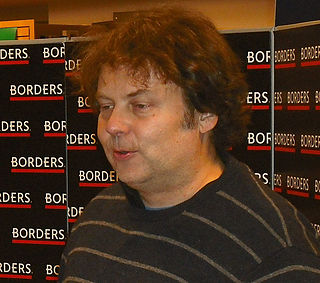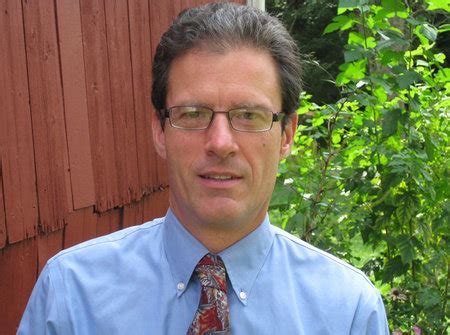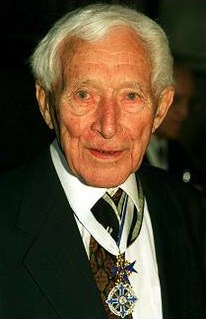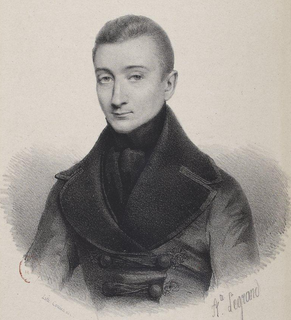A Quote by Charles Dickens
He was the meekest of his sex, the mildest of little men. He sidled in and out of a room, to take up the less space. He walked as softly as the Ghost in Hamlet, and more slowly. He carried his head on one side, partly in modest depreciation of himself, partly in modest propitiation of everybody else.
Related Quotes
Moments later a huge male with a cropped mohawk came out. Rehvenge was dressed in a perfectly tailored black suit and had a black cane in his right hand. As he came slowly over to the Brotherhood's table, his patrons parted before him, partly out of respect for his size, partly out of fear from his reputation. Everyone knew who he was and what he was capable of: Rehv was the kind of drug lord who took a personal interest in his livelihood. You crossed him and you turned up diced like something off the Food Channel.
Every time the tour guide told a story, he would build it up to the point where he'd say, "And there was Bloody Joe, and his young ghost son walked into the room." He would build it up, and then it was just "the ghost walked into the room." And he would say, "Let's move on," and that would be it. It's like, wait, what happened to the bloody ghost? That's it? We knew he was making some of it up.
It is not possible to be truly balanced in one's views of an abuser and an abused woman. As Dr. Judith Herman explains eloquently in her masterwork Trauma and Recovery, “neutrality” actually serves the interests of the perpetrator much more than those of the victim and so is not neutral. Although an abuser prefers to have you wholeheartedly on his side, he will settle contentedly for your decision to take a middle stance. To him, that means you see the couple's problems as partly her fault and partly his fault, which means it isn't abuse.
The message of Jesus is summed up partly in the Sermon on the Mount, and partly when he begins his ministry and quotes the passage from Isaiah: 'I have come to set free the prisoners and restore sight to the blind.' And certainly, his mission is also to bring hope. It was to heal people, to befriend the outcast.
At the utmost, the active-minded young man should ask of his teacher only mastery of his tools. The young man himself, the subject of education, is a certain form of energy; the object to be gained is economy of his force; the training is partly the clearing away of obstacles, partly the direct application of effort. Once acquired, the tools and models may be thrown away.
For the anarch, little is changed when he strips off a uniform that he wore partly as fool's motley, partly as camouflage. It covers his spiritual freedom, which he will objectivate during such transitions. This distinguishes him from the anarchist, who, objectively unfree, starts raging until he is thrust into a more rigorous straitjacket.
It ought to be remembered that there is nothing more difficult to take in hand, more perilous to conduct, or more uncertain in its success, than to take the lead in the introduction of a new order of things. Because the innovator has for enemies all those who have done well under the old conditions, and lukewarm defenders in those who may do well under the new. This coolness arises partly from fear of the opponents, who have the laws on their side, and partly from the incredulity of men, who do not readily believe in new things until they have had a long experience of them.
The Center for Disease Control started out as the malaria war control board based in Atlanta. Partly because the head of Coke had some people out to his plantation and they got infected with malaria, and partly cause all the military recruits were coming down and having a higher fatality rate from malaria while training than in the field.
The Center for Disease Control started out as the malaria war control board based in Atlanta. Partly because the head of Coke had some people out to his plantation, and they got infected with malaria, and partly 'cause all the military recruits were coming down and having a higher fatality rate from malaria while training than in the field.
My father's mother was a secular Jew who died in Auschwitz. I only found out as an adult because my father never talked about it. He was a secularist and never defined himself in ethnic terms - partly, I think, because he was scared; partly out of the habit of not talking of such things; partly because he didn't like being defined by other people.
For the taking of revenge, a man locks himself up alone and thinks. His stomach must be empty for his head to be full. Vengeance comes a little from the heart and a lot from the mind; one must take oneself apart from the noise of men and of things, even from what resembles them; only the voices of bells and of thunder are allowed. Let the room in which you meditate be dark, narrow and warm.





































